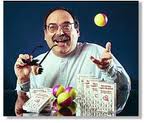What works for you when you want to relax? Have you found a reliable relaxation tool?
Advice abounds for those who are struggling to find an effective relaxation tool – the technique that will be a magical answer to stress issues. The following are quotes from some of our authors and staff describing what relaxation tools they use when stress begins to overwhelm them. Read them, and try the ones that appeal to you. Remember, of course, that relaxation is a muscle response, just like shooting a basket or playing the piano and it takes times to master a new skill. Practice for a couple of weeks before you try another. Eventually, you will find what fits you the best. I’d love to hear about your search.

Ester Leutenberg, co-author of many of our workbooks says, “When I have unwanted thoughts or memories rumbling around in my head and cannot fall asleep at night, I take in a deep breath slowly, and the release it slowly. Never make it past 4 or 5 breaths, and I’m asleep. I start with my toes and totally relax them, then ankles, calves, knees and on up, ‘till I’m a limp rag. SO GOOD!!!”

Izzy Gesel, author of Playing Along, and a master of improv tells us, “Whenever I am feeling stressed and I am able to take a moment to pause and listen to my self-talk, I often realize that my stress is about something that happened in the past, is going to happen in the future, or is about another person or something I cannot control. What’s helpful to me in these stressful moments is to close my eyes, take a breath and ask myself, ‘What am I grateful for?’ Within about 15 seconds I feel more grounded. I’m able to focus on the present and take action on something I can control thereby reducing my stress.”

Carlene Sippola, WPA’s Publisher tells us, “In the winter, I relax sitting in front of our fireplace playing a few games on my iPad or catching up on the day with my husband. In the summer, we spend time at our camper where we kayak, hike, and sit around the fire pit at night (my favorite). Spending time with good friends is always relaxing.”
Amy Broadsky is one of our talented illustrators, and a skilled, licensed therapist herself, says she does a progressive muscle relaxation starting at my feet and working upwards. “I also do deep breathing. Specifically I breathe in through both my mouth and nose to the count of 6 or 8, and then breath out to the same count. Initially I practiced these techniques three times every day until I was able to effectively relax. I have not had a panic attack in 27 years due to these techniques. I also listen to guided imagery at times, relaxation music, sounds of waves or rain.”
Our shipping and order entry Queen Deb says, “I relax at our family cabin in my kayak, with a soothing beverage.”

Julie Lusk, Yoga master and author, had a hard time choosing her favorite relaxation technique. She often combines Yoga with meditation to achieve the ultimate relaxed state.
From Jack Kosmach, WPA’s President, “I’ve always enjoyed sitting down with a good book. When we were first married, my wife Lynne and I would sit on the couch with our books and read and read. It was a really nice time to relax. Then life seemed to interrupt and the opportunities to be ‘alone’ to read became fewer and fewer. It is still my favorite way to unwind.”

I looked forward to Leigh Anne Jasheway’s response to my “How do I relax?” question. She is the author of Don’t Get Mad Get Funny and Are You Playing with Me and is a prolific speaker on all kinds of funny topics. “I’d put improv at the top of the list. Improv is like spending 2 hours at recess with friends whose sole goal is to have a good time. We laugh so hard and completely forget about anything we were worrying about before the improv session started. Afterward, I find that not only am I less stressed by things, I’m also filled with great ideas about every project I’m working on. That, in and of itself, reduces my stress further because now I have solutions.
“And let’s not forget that all that laughter introduces endorphins and other healing chemicals into the blood stream and massages all the organs. Improv is like recess, falling in love, and a full-body massage all wrapped in one playful adventure.”
Fran Liptak who put her own devastating loss to use by co-authoring the GriefWorks series with Ester Leutenberg says she does several things. Here’s her list:
- Meditate daily – I have a practice that involves some stretching and meditation each morning. I miss this when I don’t do it.

- Walk outside – I have a real need for fresh air so when the weather is really too harsh for me to be outside I notice it.
- Take long, warm baths as needed/desired
- Frequent deliberate long, slow, deep breaths throughout the day
- Listen to guided imagery scripts as needed
- Exercise regularly
- Spend time with friends
- Gratitude practice – say aloud a minimum of three things each day for which I’m grateful, just before going to sleep

Jacquelyn Ferguson definitely has a favorite relaxation approach. Here’s what she does:
I start in a reclining (a recliner, not a bed) position with eyes closed doing a rhythmic breathing exercise for a minute or two or more, depending upon how hyper I am.
I inhale slowly to the count of 6 observing my abdomen swelling, hold to count of 4, exhale to count of 9 (to trigger the parasympathetic nervous system – the “relaxation response”) focusing on my abdomen compressing. I repeat until I find myself floating around with no real attempt to do anything. If I return to more of an “awake” feeling I repeat the breathing exercise. If distracted I allow myself to be aware only of what I sense: sounds, a breeze, an odor, etc.
I program myself to become alert in 20 minutes or 30 minutes. I do become alert each time at the virtually the exact minute programmed. This part fascinates my husband, Bob.
That’s all I do. I have others I’ve done over the years but this one is what I’ve been doing for a good decade. So, so simple.
Me: When I first came to work at Whole Person I hadn’t heard of relaxation techniques, let alone tried one. After a particularly harrowing day my boss sent me home with “Countdown to Relaxation”, and after a couple of weeks of practice it worked like a charm. Now I begin to count backwards from ten, deepening my breathing with each number, cleansing my body as I become more and more relaxed. I recommend it highly. Click here for the CD. I’ve used it for so long that all I need to hear is the opening music and I can do the rest myself. My other favorite: close my eyes when my family is all together and immerse myself in the sound of happy folks.
As I said at the start of this piece, I’d love to know what you do to relax. Click in the comment section and tell your story.

I’m Jacks cousin, Richard, BS, CH. I’ve been a hypnotherapist for 33 yrs. I notice that you don’t mention hypnosis/self hypnosis.
Hey Richard, we polled a few of our authors and office staff to get an idea what works for some people. We would love to hear how you use self hypnosis to relax.